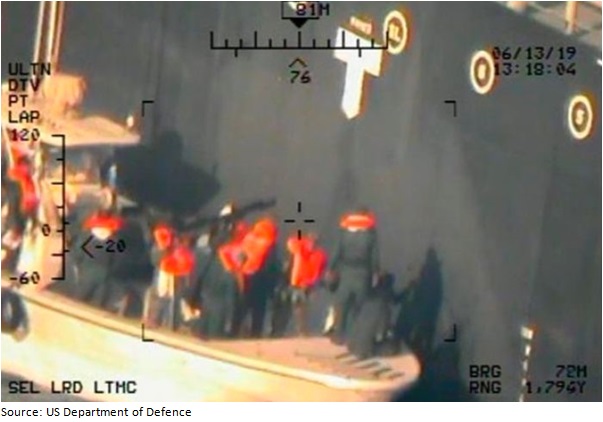On 8 May, the first anniversary of President Trump’s announcement of the US’s withdrawal from the Joint Comprehensive Plan of Action (JCPOA, the Iran Nuclear Agreement), Iran announced that it would restart part of its nuclear programme. It will increase its enrichment of uranium and bypass the limit it is allowed to store under the terms of the agreement, even though it does not plan to withdraw from the Agreement itself. According to a statement put out by Tehran:
The Islamic Republic of Iran in reaction to the exit of America from the nuclear deal and the bad promises of European countries in carrying out their obligations will restart a part of the nuclear activities which were stopped under the framework of the nuclear deal.
Soon after that statement and following as-yet-unexplained allegations of potential Iranian attacks on American targets in the region, President Trump ordered the deployment of an aircraft carrier strike force to the region. This was a warning to Tehran that the US would use “unrelenting force”, in the words of National Security Advisor John Bolton, were Iran to carry out an attack. Secretary of State, Mike Pompeo, expanded on that, saying:
It is absolutely the case that we have seen escalatory actions from the Iranians and it is equally the case that we will hold the Iranians accountable for attacks on American interests. If these actions take place, if they do by some third-party proxy, a militia group, Hezbollah, we will hold the Iranian leadership directly accountable for that.
Read the article by Lindsay Hughes, Senior Research Analyst, Indian Ocean Research Programme on Future Directions International.

